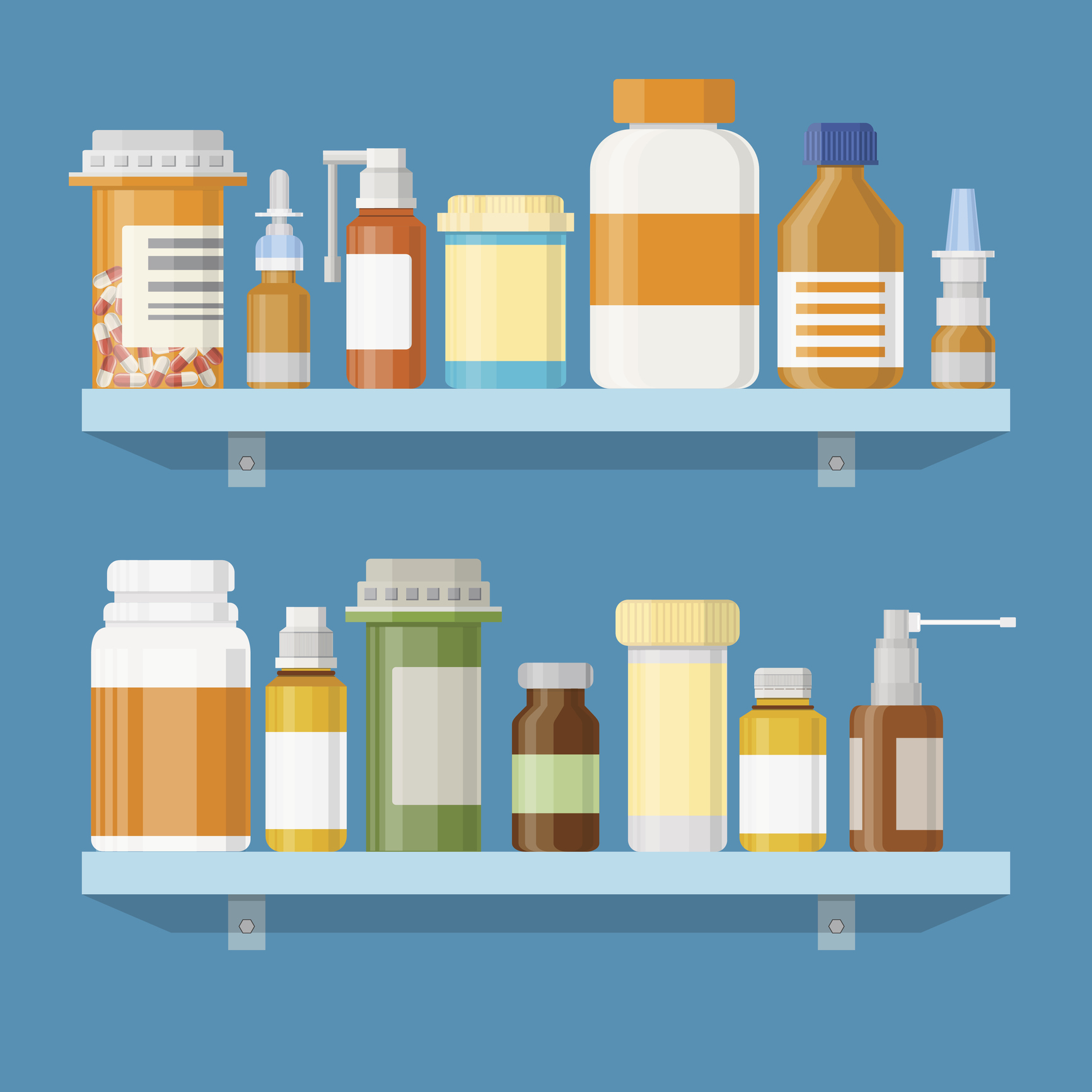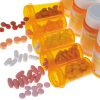- Empty cart.
- Continue Shopping
How to Store Medications Properly

Properly storing medications is crucial to ensure their effectiveness and safety. Whether you’re taking over-the-counter drugs, prescription medications, or supplements, understanding how to store them correctly can make a significant difference in their potency and your well-being.
1. Follow the Label Instructions
Always start by reading the label or prescription instructions that come with your medication. The label provides specific guidance on how to store the medication, including the ideal temperature range, whether it should be kept in the refrigerator, and any other storage requirements. Following these instructions is essential to maintain the medication’s stability and effectiveness.
2. Store Medications in a Cool, Dry Place
In general, most medications should be stored in a cool, dry place. This means keeping them away from extreme temperatures, humidity, and direct sunlight. Bathroom cabinets and kitchen counters are often not the best choices for medication storage due to temperature fluctuations and humidity levels. Instead, consider a dedicated medicine cabinet or a drawer in a bedroom or hallway where the temperature and humidity are more stable.
3. Use Child-Resistant Containers
Child-resistant containers are designed to prevent young children from accessing medications. If your medications come in such containers, always make sure they are properly closed and latched. Keep these containers out of the reach of children, preferably in a high cabinet or locked drawer. This precaution is vital to prevent accidental ingestion, which can have serious consequences.
4. Keep Medications in Their Original Packaging
It’s a good practice to keep medications in their original packaging, especially if the packaging includes important information like expiration dates and dosage instructions. This helps you easily identify the medication and ensures that you’re following the correct dosing regimen. If you need to transfer medication to a different container (e.g., a pill organizer), make sure you label it accurately.
5. Be Mindful of Temperature-Sensitive Medications
Some medications, such as insulin, certain antibiotics, and vaccines, are temperature-sensitive and must be stored in the refrigerator. It’s crucial to maintain the recommended temperature range for these medications to prevent degradation. Use a thermometer to monitor the temperature inside your refrigerator and ensure it stays within the specified range.
6. Secure Medications Away from Pets
Just as you need to keep medications out of reach of children, you should also protect them from pets. Some pets may chew or ingest medications, leading to poisoning or harm. Store medications in a location that is inaccessible to curious pets and ensure that any pet-specific medications are also securely stored.
7. Check Expiration Dates
Regularly inspect your medications for expiration dates. Using expired medications can be ineffective or even harmful. Dispose of any medications that have passed their expiration dates according to local guidelines. Some pharmacies and healthcare facilities provide medication disposal services to ensure safe and environmentally friendly disposal.
8. Transport Medications Safely
If you need to travel with medications, take extra precautions to ensure they remain safe and effective. Use a travel-sized cooler for temperature-sensitive medications, and pack medications in their original packaging with a copy of the prescription or a note from your healthcare provider. Avoid leaving medications in a hot car or in checked luggage during air travel.
9. Store Medications Separately
Keep different medications separate to prevent mix-ups. Medications can look similar, and taking the wrong one can be dangerous. If you’re taking multiple medications, consider using a pill organizer with compartments for each day of the week to help you keep track and avoid confusion.
Properly storing medications is a crucial aspect of maintaining their effectiveness and ensuring your safety. By following these guidelines, you can safeguard your medications and minimize the risk of accidental ingestion, degradation, or other potential problems. Always consult your healthcare provider or pharmacist if you have specific questions about the storage requirements of your medications, and remember to dispose of expired or unused medications responsibly. Your health and well-being depend on it.








